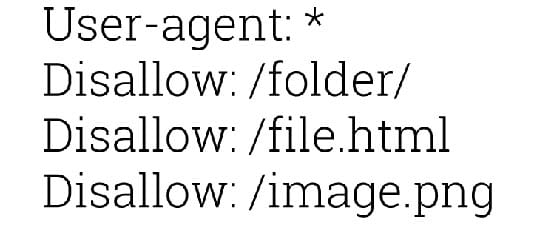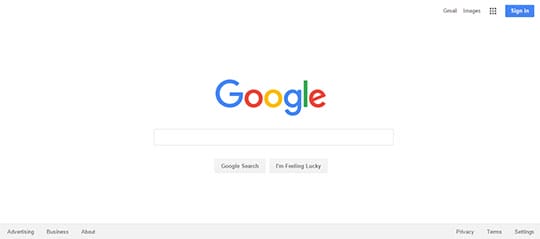Not many online marketers and SEO experts know exactly how Google’s indexing algorithm. To make it short and crisp, here in this article, I will not elaborate any technical aspects of Google indexing methods, but rather focus on the techniques and best practices around the subject. I will only list out all points that we need to follow in time of releasing a new website. The following points will definitely help your new website to get indexed quickly by Google as well as by other search engines.
1) Adding a blog to your website:

By adding a blog to your website, you get the chance to add fresh contents to your website frequently. It is always found that Google loves to crawl fresh and updated contents of any websites. For this, a blog can be your ideal choice. Try to keep posting minimum 3 to 4 fresh and unique articles a week so Google always comes back to your website frequently in expectations of getting new content.
2) Adding the Robots.txt file:

With the help of this robots.txt file, you can keep control over your website contents from crawling it by Google or any other search engines. Practically you can be able to tell search engines to allow or disallow particular contents from crawling and indexing by the search engine. This is a must for any website owner to apply on their website. For an example, if you are using WordPress, by using a custom robots.txt file you can easily disallow some of your unwanted folders like “wp-admin” or “wp-includes” from search engine crawling. This can make sure that the search engine will index only the necessary files of your website.
3) Creating and Submitting a Sitemap:

There are two types of sitemaps. One is HTML sitemap and the other one is XML sitemap. An HTML sitemap helps your website visitors to navigate well within your website by displaying all your necessary posts and pages in a structured way. Similarly, an XML sitemap helps to get your website a better visibility for search engines. At the same time, if you implement any changes in your website, it informs the search engines about that. So adding an XML sitemap is a must. If you are in WordPress, you can implement it very easily by using any plugin like Google XML or Yoast SEO.
4) Installing Google Analytics:

Google Analytics is a free tool by Google that can help you to track your website traffic. You can trace from where your visitors are coming and whether you are targeting your precise audience or not. You can practically trace your visitor’s origin, from where they are actually visiting your website. It will also help you to find out how many visitors you are getting from which search engines. It can also show other referring sites as well. It will also help you to know which devices and browsers your visitors have used to access your website.
Not only that, you can also track the exact keywords that visitors used to find your website. This can surely give you an idea how your website is doing and whether you are on the right way for promoting your website. Google Analytics is really helpful to develop a good marketing strategy for your website.
5) Submitting Website URL to Search Engines:

It is important to submit your new website URL to search engines. Google, as well as other search engines, provides an online tool for users to submit their website. You have to submit your website to all leading search engines like Google, Yahoo, and Bing. Also, if your website is a country specific website, then it is a good idea to add your website to your local search engines also. This submission will surely increase the chance of fast indexing of your website. For your reference here I am providing the direct links through which you can submit your website to Google, Bing and Yahoo:
- Submit your website to Google => Click Here.
- Submit your website to Bing => Click Here.
- Submit your website to Yahoo => Click Here.
6) Creating and Updating Profiles on Social Medias:

Social media like Twitter, Facebook, Pinterest, LinkedIn and especially Google+ are a very popular medium for promoting your website. Google and other search engines are paying good attention to the signals from these popular Social Medias. Having a profile on these platforms will definitely boost your website towards quick indexing by Google.
7) Sharing your Website on your Social Media Profiles:

Sharing your website links and inner pages regularly on your social media profiles can boost the indexing time by Google. Although all links you share will be No-Follow links, but it will still help your website to get good social signals and so Google will love to crawl your website more frequently.
8) Setting up an RSS Feed for your website:

RSS feed is not dead at all and can help on indexing your website on Google. Just create an RSS feed of your blog posts using FeedBurner, a free tool provided by Google. It will help Google to get notified when you publish a new blog post and so Google will index your new post quickly.
9) Submitting your website to blog directories:

This is the trickiest one. Not all blog directories are good. So you cannot add your website randomly in any directories. Find out some well-ranked directories with high authority (if possible, from the niche of your website) and then submit your website on those. This can help your website to get some decent backlink and will definitely increase the authority of your website in the eye of Google. And so it can passively help you to improve your website indexing speed.
10) Embedding YouTube Videos on your Blog Posts:

Adding or embedding relevant Youtube videos in your blog posts can be awarding to get quickly indexed by Google. It seems Google is really interested to find Youtube embeds from a blog post and giving some extra credentials to those links which are promoting Youtube videos. So, it is definitely a great option to try. Just make sure the video is relevant and not contradict with your blog content.
11) Using the Google Search Console (formerly Google Webmaster Tools):

Google Search Console is a huge collection of tools and resources which help the website owners, along with webmasters and even SEO professionals to monitor up the website performance in the Google search index. You can also submit your website XML sitemap using Google Search Console. This is a great tool to monitor your website indexing status, finding and fixing your website SEO errors and planning for your website’s SEO strategies.
12) Adding SEO Tags Correctly on each Page:

The correct use of SEO tags like Page Title, Meta Description, and Meta Robots etc. can help Google to understand a page correctly. Take a note, Google does not use these tags directly for their indexing purpose. But still using these tags correctly for each page can help Google to quickly understand the page at the time of crawling. It can improve the crawling speed by Google and also it can help to rank high in Google search.
Conclusion:

All the above methods if applied in right procedures then your new website will surely get indexed quickly by Google. Most of the above points are not only applicable for Google but also for other search engines also. But make sure, these methods are only applicable to improve your website indexing speed. You still need to work hard on your SEO and online marketing strategies to get rank higher on Google search.



